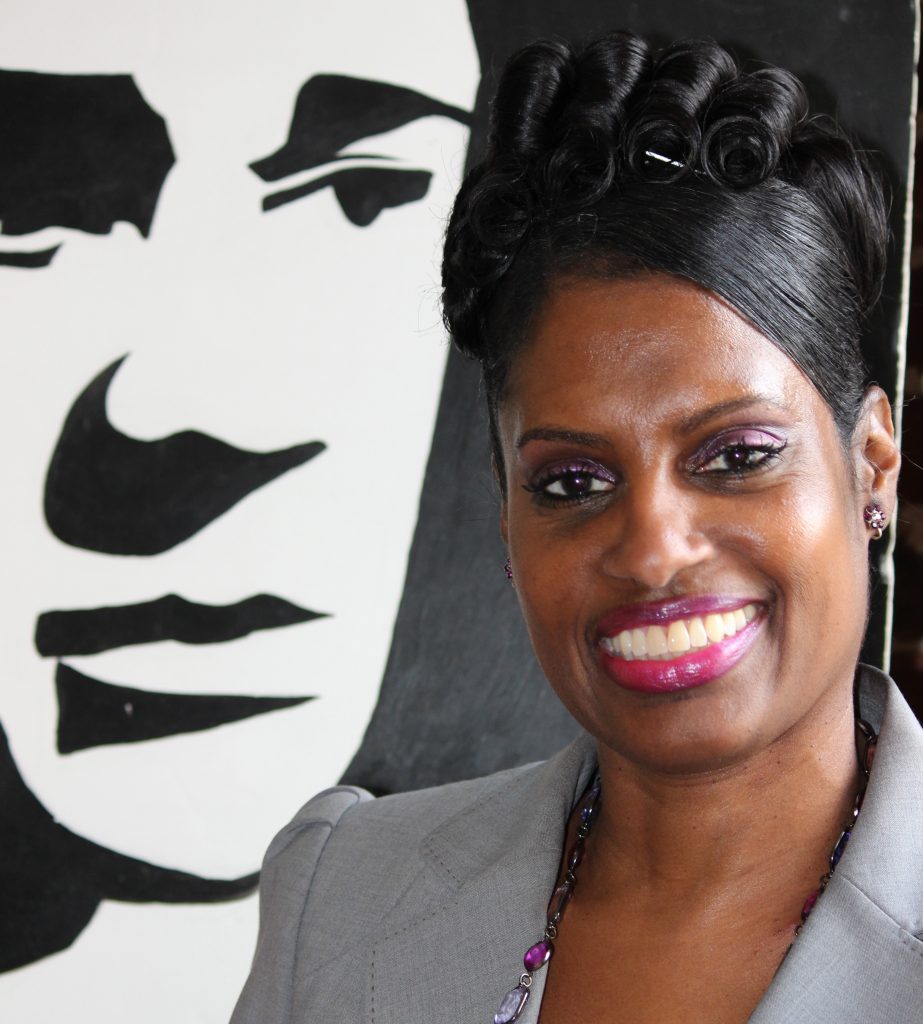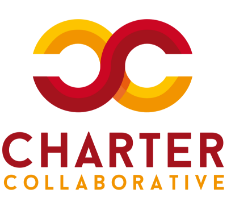
Carolyn Young-Folk
Chief of Staff
Richard Wright Public Charter Schools
for Journalism & Media Arts
Howard University Middle School of Mathematics & Science
Location: Washington, DC
Year Opened: August 2011
Student enrollment: 303
Grades served: 8th-12th grade
Website: www.richardwrightpcs.org
Student Demographics
Black/African-American: 98%
Latinx/ Hispanic: 1%
Two or more races: 1%
Homeless Students: 6%
FRPM/FRPL %: 100%
Students with Disabilities: 25%
ELL/ESL Students: 0%
A JOURNEY OF TRANSFORMATION
Over the history of my educational journey, it has been important to me to empower others and assist those in leadership to accomplish their goals. As I have developed from a teacher into an administrative leader, I have been empowered by educational leaders of color who believed in my talents, which catapulted me into positions of leadership where I am also able to empower others.
At the turn of the century, a school leader presented me with an opportunity to become a Literacy Coach with an organization called Reading First. The Reading First organization provided me with the foundation of specific reading coaching techniques that not only helped me to diagnose reading difficulties but also improved my reading instruction and extended my understanding of how data drives instruction. At around the same time, I completed a graduate certification program with Harvard University. In this program where I learned several pedagogical strategies that help improve the reading shortcomings of students. I also developed a foundation for helping educators improve their reading instruction.
Before becoming the Chief of Staff at Richard Wright, I served in the capacity of the Reading Specialist, Assessment Data Coordinator, and Deputy Chief Academic Officer. As the Reading Specialist, I supported the reading needs of students within the classroom setting and neighboring communities as well. This role afforded me many opportunities to work alongside families and share educational strategies to improve their literacy skills. As the Assessment Data Coordinator, I utilized data capture to identify learning gaps and recommended intervention programs to ensure learning is taking place. As Deputy Chief Academic Officer, my focus was on continuing to provide intervention for struggling readers as well as conducting high-quality professional development and training in reading strategies that support the struggling reader.
WHY RICHARD WRIGHT
What initially attracted me to Richard Wright PCS was the mission statement––to transform students in grades 8-12 into well-versed media contributors by providing a student-centered environment that connects them to the classics and modern languages and a curriculum focused on strong writing skills and vocabulary. At Richard Wright PCS, we use a classical approach to learning and assessments. We infuse journalism and media arts in our content.
It wasn’t just about the students’ academics. Dr. Clark and his leadership team wanted to truly transform student lives, by addressing the whole student and creating life-long learners beyond the classroom. Through researching Richard Wright and reading his novels Black Boy and Native Son, I realized our students had some of the same struggles and hardships, especially our marginalized students. Their home environments, not being able to read, not having the opportunities to learn, that is what attracted me to want to be part of this organization.
I see myself as a servant leader who recognizes the importance of lifelong learners and that every child should have a voice. I am a leader who works constantly and diligently to ensure that those voices are heard. I believe in the philosophy of students having a hand in their academic learning and that we have qualified teachers to stand before them. As an effective leader, I must have credibility and trust with teachers and staff to establish a clear vision around student learning.
LESSONS LEARNED FROM COVID-19
It has been a monumental year of challenges and change on a national and global scale due to the COVID-19 pandemic. Nonetheless young people still have the power to create a movement when given numerous platforms and ways to engage in meaningful, thoughtful reflection and express the issues that affect their lives. Richard Wright students rise to the occasion, whatever it may be, to make a positive difference in the world.
Due to COVID-19, we needed to adapt and act quickly. We assessed what we needed in terms of technology. Many of our families did not have WiFi, so we made sure they received hot spots and other technological needs and assistance. Each student received a brand new Chromebook to utilize throughout the school year. We provided ongoing training for teachers to feel comfortable and confident teaching on Zoom. Instead of having our regular monthly meetings with families, we started meeting with our new parents and older parents weekly, making sure we could support their needs through this crucial time.
When we looked at the digital divide, it was larger than we anticipated, so we addressed those disparities for our students. We kept the lines of communication open and, by doing that, we were able to connect with our students. We even had training for the parents so they could help their child at home and with all of our efforts, and we continue to gain more support from our parents than ever before.
IMPACTS OF THE MANATI FELLOWSHIP
The Manati Fellowship has taught me that it’s important to always continue to learn and know your historical background. All of the training prepared me for this moment. The training and collaboration, meeting and connecting with other school leaders of color who have the same problems we’re going through, helped me to navigate through a variety of situations. In the world of charter schools, you don’t always have those connections.
The readings and the strategies helped because they were in real-time. I could take them back to the school, work with the teachers, and roll them out; I use the DC Manati Resource Guide we created to guide my professional development. I roll it out in our peer learning communities with our teachers. The fellowship helped me in areas such as teacher communication, planning, and being reflective about my practice. That was crucial, because it gave me the ability to go back and look at some of the things that I knew I had to tweak, some of the skills that I needed to strengthen. The Manati cohort family provided a safe place I could go to if I had a problem or a difficult situation to work through at the school. I’m very grateful for the Manati Fellowship Program.
CHARTER LEADERS OF COLOR MATTER
Charter leaders of color have an opportunity to show the value of education and learning. We can chart the course for academic growth and provide children of color a voice when it comes to their academic development. We don’t just rely on research and data but also have the breadth and depth from personal experience and contextual familiarity to draw from. Leaders of color can identify more acutely with a child of color’s socio-cultural and familial perspectives in both the close-up and broader views of the educational landscape. We can use this understanding to connect with the parents, the families, and the community with a greater sense of empathy and understanding towards the layered complexities in the challenges they face.
Charter leaders of color also matter because students need to see people of color in leadership roles that they can aspire to hold. We serve as role models and mentors whom students and staff can emulate throughout their developmental journeys in education. Solutions and ideas of charter leaders of color can seem unorthodox, but oftentimes they can exponentially increase the success of a student’s educational path, creating personal buy-in to the students’ academic success from the student and their family. We can help students navigate their educational futures with a vested interest, and steer the entire family towards success in various aspects of their lives, educationally, economically, and even emotionally.
Charter leaders of color comprehend more deeply the vast inequities caused by institutional and systemic racism. The inequities for our Black and Brown students have to be addressed. We have to do it because we are it. We are the only people they have that will support them in this. I feel that this is life-saving work we are in and I am fully invested.
